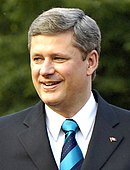| |||||||||||||||||||||||||||||||||||||||||||||||||||||||||||||||||||||||||||||||||||
308 seats in the House of Commons 155 seats needed for a majority | |||||||||||||||||||||||||||||||||||||||||||||||||||||||||||||||||||||||||||||||||||
|---|---|---|---|---|---|---|---|---|---|---|---|---|---|---|---|---|---|---|---|---|---|---|---|---|---|---|---|---|---|---|---|---|---|---|---|---|---|---|---|---|---|---|---|---|---|---|---|---|---|---|---|---|---|---|---|---|---|---|---|---|---|---|---|---|---|---|---|---|---|---|---|---|---|---|---|---|---|---|---|---|---|---|---|
| Opinion polls | |||||||||||||||||||||||||||||||||||||||||||||||||||||||||||||||||||||||||||||||||||
| Turnout | 60.9% ( | ||||||||||||||||||||||||||||||||||||||||||||||||||||||||||||||||||||||||||||||||||
| |||||||||||||||||||||||||||||||||||||||||||||||||||||||||||||||||||||||||||||||||||
 The Canadian parliament after the 2004 election | |||||||||||||||||||||||||||||||||||||||||||||||||||||||||||||||||||||||||||||||||||
| |||||||||||||||||||||||||||||||||||||||||||||||||||||||||||||||||||||||||||||||||||
The 2004 Canadian federal election was held on June 28, 2004, to elect members to the House of Commons of Canada of the 38th Parliament of Canada. The Liberal government of Prime Minister Paul Martin lost its majority but was able to continue in office as a minority government after the election. This was the first election contested by the newly amalgamated Conservative Party of Canada, after it was formed by the two right-of-centre parties, the Progressive Conservative Party and the Canadian Alliance.
On May 23, 2004, the governor general, Adrienne Clarkson, on the advice of Martin, ordered the dissolution of the House of Commons, triggering an early election despite the Liberals being only three and a half years into their five-year mandate. Earlier, the election result was widely expected to be a fourth consecutive majority government for the Liberals, but early in 2004 Liberal popularity fell sharply due to the emerging details of the sponsorship scandal. Polls even started to indicate the possibility of a Conservative minority government. In the end, the Liberals won a minority government, though they were well short of a majority and lost nearly three dozen seats.
On election day, polling times were arranged to allow results from most provinces to be announced more or less simultaneously, with the exception of Atlantic Canada, whose results were known before the close of polling in other provinces due to the British Columbia Supreme Court's decision in R v Bryan.
Cite error: There are <ref group=lower-roman> tags or {{efn-lr}} templates on this page, but the references will not show without a {{reflist|group=lower-roman}} template or {{notelist-lr}} template (see the help page).





